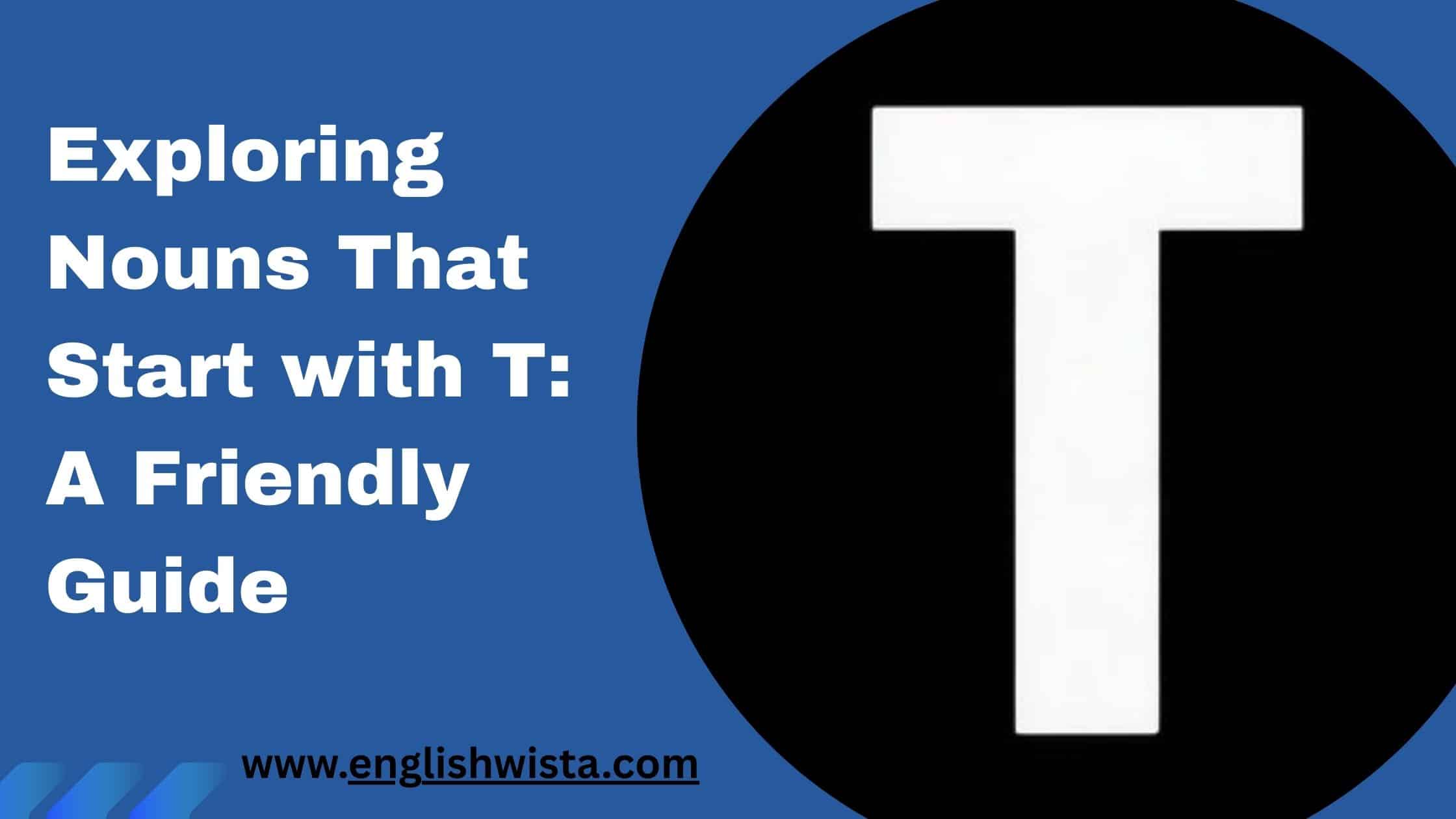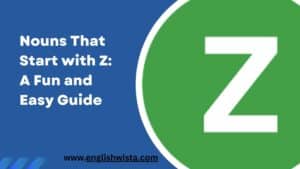Have you ever noticed how many everyday words begin with the letter T? From table to tree, from toy to teacher, nouns that start with T surround us in daily conversations. Nouns are naming words. They tell us about people, places, things, or even ideas. And when we look specifically at nouns beginning with the letter T, we find a rich and varied collection that is both fun and useful to learn.
In this article, we’ll take a step-by-step journey into nouns starting with T. We’ll explore their meanings, common examples, and even some fun facts. Whether you are a beginner in English or just curious about words, this guide will give you a clear and easy understanding.
So, grab a cup of tea (another T noun!) and let’s begin.
What Are Nouns That Start with T?
A noun is a word that names something. It could be a thing (like a television), a person (like a teacher), a place (like a town), or even an idea (like trust).
When we focus on nouns starting with T, we’re simply looking at all the naming words that happen to begin with this letter. English has many of them, and they appear in all parts of life home, school, work, and beyond.
Here are a few simple examples:
- Table – a piece of furniture with a flat top.
- Tiger – a large wild animal with stripes.
- Ticket – a printed card or paper that allows you to enter or travel.
- Travel – the act of going from one place to another.
Notice how each of these nouns begins with T, yet they describe very different things. That’s the beauty of language!
Why Focus on T Nouns?
You might wonder, why pay attention to nouns beginning with one specific letter? Here’s why it helps:
- It makes learning less overwhelming. Instead of trying to remember hundreds of words, you can learn them in small groups.
- It strengthens your vocabulary step by step. The more T nouns you know, the more comfortable you’ll feel when speaking or writing.
- It’s a fun way to spot patterns in English words.
Think of it as organizing your closet by color. It just makes everything clearer and easier to find.
Is Table a Noun?
Yes, table is definitely a noun. In fact, it’s one of the most common T nouns.
Definition: A table is a piece of furniture with a flat surface, usually supported by legs. People use it to eat meals, study, or place things on.
Examples:
- “The family sat around the table for dinner.”
- “She placed her books on the table before leaving.”
Notice how the word table names an object. That makes it a noun.
What About Tree?
Another popular T noun is tree.
Definition: A tree is a tall plant with a wooden trunk and branches.
Examples:
- “The children played under the big tree in the park.”
- “Apple trees grow in this orchard.”
Here, we also see the plural form trees. That shows us how nouns can change depending on number.
Are All T Words Nouns?
No, not all words that start with T are nouns. Some are verbs, adjectives, or other parts of speech. For example:
- Talk (verb) – “I like to talk with my friends.”
- Tall (adjective) – “He is very tall.”
- Truly (adverb) – “She is truly kind.”
So, while many useful nouns begin with T, not every T word is a noun. This is why it’s important to check the role a word plays in a sentence.
Common T Nouns You Should Know
Here’s a handy list of some of the most common nouns starting with T:
- Table
- Teacher
- Town
- Ticket
- Toy
- Tiger
- Train
- Travel
- Telephone
- Team
- Time
- Task
- Trust
These nouns often appear in daily life. Learning them gives you words to talk about furniture, people, transportation, ideas, and much more.
How Do You Make T Nouns Plural?
Most nouns in English follow simple plural rules. For T nouns, it works the same way.
Add -s
- Table → Tables
- Toy → Toys
Add -es (if the noun ends with certain letters like s, sh, ch, x, or z)
- Tax → Taxes
Change y to i and add -es (if the noun ends in consonant + y)
- Treaty → Treaties
Examples in sentences:
- “The tables in the classroom were clean.”
- “The children played with their new toys.”
- “The two countries signed three treaties.”
Fun T Nouns with Abstract Meanings
Not all nouns are things we can touch. Some describe ideas, qualities, or feelings. These are called abstract nouns. Here are a few starting with T:
- Truth – the state of being honest or real.
- Trust – belief in someone or something.
- Talent – a natural ability or skill.
- Thought – an idea that comes to your mind.
- Time – the ongoing flow of past, present, and future.
Examples:
- “She always tells the truth.”
- “I have complete trust in my friend.”
- “He showed great talent in music.”
Abstract nouns are powerful because they help us talk about invisible but important things.
Fun Facts About T Nouns
- The word town comes from an old English word meaning “enclosure” or “settlement.”
- Tiger has roots in Greek and Persian, pointing to its ancient recognition as a powerful animal.
- The noun telephone comes from two Greek words: tele (far) and phone (voice or sound). So it literally means “far sound.”
- Team originally meant “family” or “descendants” in old Germanic languages, but today it means a group working together.
These small facts show us how words carry history inside them.
How to Remember T Nouns Easily
Here are a few simple tricks:
- Make lists – Write down 5 new T nouns each day.
- Use them in sentences – For example: “The teacher gave us a task at the table.”
- Group them by theme – Example: Animals (Tiger, Turtle), Places (Town, Temple), Ideas (Trust, Talent).
- Practice with friends – Challenge each other to say sentences with as many T nouns as possible.
Short Sentences with T Nouns
Let’s practice with some examples:
- “The train arrived on time.”
- “A tiger lives in the trees of the jungle.”
- “The team worked hard on the task.”
- “He bought a ticket to the theater.”
- “The teacher gave the children new toys.”
Notice how natural these nouns sound in everyday English.
Extra T Nouns You Might Like
Here are some more nouns to explore:
- Temple
- Tunnel
- Treasure
- Topic
- Tournament
- Trap
- Technology
- Tradition
- Treatment
- Trip
Each of these nouns adds more color and richness to your vocabulary.
Conclusion
We’ve taken a friendly journey through the world of nouns beginning with T. From simple words like table and tree to abstract ones like trust and truth, these nouns show us how wide and wonderful the English language can be.
Remember, a noun is simply a naming word. When you focus on a single letter, like T, you make learning manageable and fun. You also discover patterns, history, and practical ways to use new words in sentences.
So next time you hear someone say ticket, team, or time, you’ll know exactly why these are nouns and you’ll have plenty of your own examples to share.
Learning nouns doesn’t have to feel heavy or boring. Think of it as collecting treasures. And today, you’ve added a whole treasure chest of T nouns to your vocabulary!



